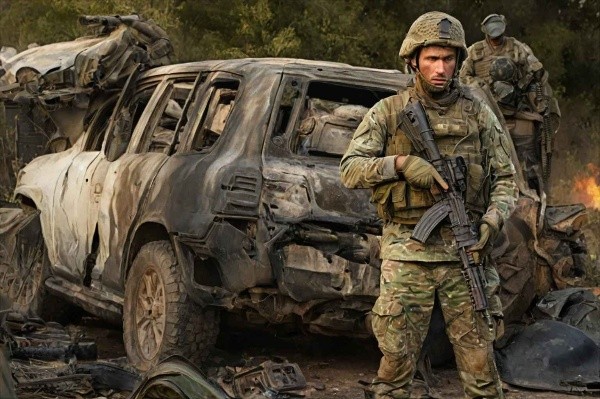Iran’s Plan to Strike Back Against the U.S.
Iran’s Military Preparations Following U.S. Attacks
Loading...

At least 10 people were hurt after a convoy from the Port Qasim Electric Power Company was attacked near Karachi airport.
Incident Overview
In a tragic incident near Karachi airport, the Chinese Embassy in Pakistan has confirmed the deaths of two of its citizens and injuries to a third following a terrorist attack on their convoy. The attack took place around 11 PM local time on Sunday, targeting employees of the Port Qasim Electric Power Company as they were traveling close to Jinnah International Airport.
According to reports from Geo News, at least ten individuals were injured during the violent incident, which involved an explosion that damaged multiple vehicles.
Embassy Response
In a statement released early Monday, the Chinese Embassy condemned the attack as a "terrorist act" and called on Pakistani authorities to conduct a thorough investigation. The embassy urged the Pakistani government to identify and punish those responsible for the attack and to implement necessary measures to ensure the safety of Chinese citizens and their projects in Pakistan.
Hassaan Khan, a rescue official who responded to the scene, reported that the explosion resulted in significant damage, with ten vehicles affected and four completely destroyed.
Claim of Responsibility
The Balochistan Liberation Army (BLA), an armed group seeking independence for Balochistan, has claimed responsibility for the attack. The organization, which is banned by the Pakistani government, stated that the assault involved an improvised explosive device (IED).
This latest attack is part of a larger pattern of violence attributed to the BLA, which has increasingly targeted Chinese interests in Pakistan, particularly in the strategically significant region of Balochistan, which borders both Iran and Afghanistan.
Historical Context
The BLA has been involved in a series of violent incidents in the region, including coordinated attacks last August that resulted in over 70 fatalities. Other notable attacks attributed to the group include the killing of seven barbers in Gwadar in May, and the abduction and murder of several individuals from a highway in April.
The BLA's agenda focuses on opposing what they see as exploitation of Balochistan's resources by the Pakistani government, often with Chinese backing. The group has previously targeted Chinese nationals, reflecting its animosity towards Chinese investments in the region.
In recent years, several high-profile attacks on Chinese citizens and interests have occurred, including the murders of five Chinese engineers and a Pakistani national near the China-backed Dasu hydropower project earlier this year. In 2021, nine Chinese engineers were killed in a similar attack in the same vicinity.
Implications for China-Pakistan Relations
The attack raises serious concerns regarding the safety of Chinese investments in Pakistan, particularly as the nation prepares to host the Shanghai Cooperation Organisation (SCO) summit in two weeks. The Chinese Embassy has issued warnings to its citizens and companies operating in Pakistan, advising them to remain vigilant, enhance their security measures, and take all necessary precautions to ensure their safety.
The Port Qasim Electric Power Project, which is backed by Chinese funding, aims to construct two power plants near Karachi. The ongoing violence against Chinese nationals and interests in Pakistan poses a challenge to the bilateral relationship between the two countries, with potential implications for future investments and collaborations.
As Pakistan grapples with rising insurgency and security threats, the need for a robust response to protect foreign nationals and interests remains a pressing concern.
BMM - MBA
Iran’s Military Preparations Following U.S. Attacks
Troops remain in five strategic locations, raising fears of renewed tensions and long-term occupation.
Opposition forces have taken control of the capital after a significant offensive. Here is how it unravelled.
